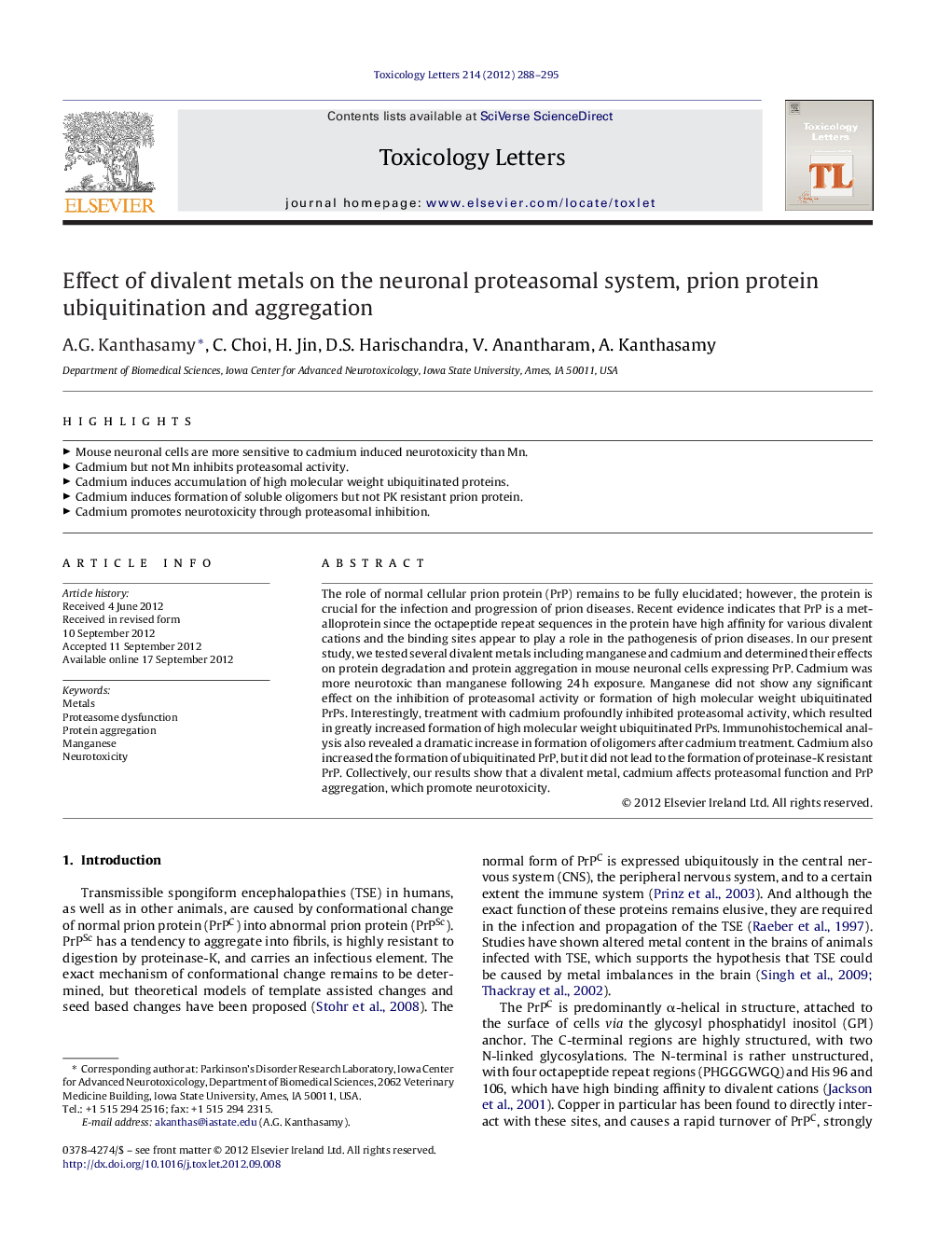| کد مقاله | کد نشریه | سال انتشار | مقاله انگلیسی | نسخه تمام متن |
|---|---|---|---|---|
| 2599618 | 1133221 | 2012 | 8 صفحه PDF | دانلود رایگان |

The role of normal cellular prion protein (PrP) remains to be fully elucidated; however, the protein is crucial for the infection and progression of prion diseases. Recent evidence indicates that PrP is a metalloprotein since the octapeptide repeat sequences in the protein have high affinity for various divalent cations and the binding sites appear to play a role in the pathogenesis of prion diseases. In our present study, we tested several divalent metals including manganese and cadmium and determined their effects on protein degradation and protein aggregation in mouse neuronal cells expressing PrP. Cadmium was more neurotoxic than manganese following 24 h exposure. Manganese did not show any significant effect on the inhibition of proteasomal activity or formation of high molecular weight ubiquitinated PrPs. Interestingly, treatment with cadmium profoundly inhibited proteasomal activity, which resulted in greatly increased formation of high molecular weight ubiquitinated PrPs. Immunohistochemical analysis also revealed a dramatic increase in formation of oligomers after cadmium treatment. Cadmium also increased the formation of ubiquitinated PrP, but it did not lead to the formation of proteinase-K resistant PrP. Collectively, our results show that a divalent metal, cadmium affects proteasomal function and PrP aggregation, which promote neurotoxicity.
► Mouse neuronal cells are more sensitive to cadmium induced neurotoxicity than Mn.
► Cadmium but not Mn inhibits proteasomal activity.
► Cadmium induces accumulation of high molecular weight ubiquitinated proteins.
► Cadmium induces formation of soluble oligomers but not PK resistant prion protein.
► Cadmium promotes neurotoxicity through proteasomal inhibition.
Journal: Toxicology Letters - Volume 214, Issue 3, 15 November 2012, Pages 288–295